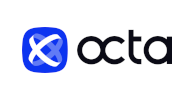Buy the dip, sell the rally, or time the market? Octa broker explains averaging strategies

Averaging is a go-to tactic for many novice traders, but it's not without pitfalls. While it offers smoother entries and can mitigate timing risk, it may just as easily magnify losses if used without discipline and planning. Kar Yong Ang, a financial market analyst at Octa broker, explains the basics of averaging, its types, benefits, and risks.
What is averaging in trading?
Averaging is adjusting one's position size as prices move, typically to ride trends. The concept is applicable across markets, including Forex, equities, crypto, and commodities.
Most beginners encounter 'averaging down' first: adding to a losing long position as the price drops to reduce the breakeven point. Less common but equally valid is 'averaging up'—increasing a position as prices rise when holding short trades. At its core, averaging shifts the cost basis of your trade. For example, if you buy a stock first at £100 and then at £90, your average entry is £95, meaning a smaller rebound is needed to return to profit.
Other types of averaging
Pyramiding or price averaging is a form of price-based averaging whereby traders increase their exposure in a financial instrument when the market moves in their favour, not against them. It's used to ride the momentum. Trend-followers may pyramid during pullbacks to build exposure in well-established bullish trends. This principle often lies at the core of many algo-trading systems.
Time-based averaging or dollar cost averaging (DCA) is a time-based method where a trader commits a fixed amount of capital at regular intervals, regardless of price. Common in long-term investing (especially in volatile assets like crypto), DCA helps reduce the emotional strain of timing entries and smooths out the impact of volatility over time.
5 key benefits of averaging
- Improves average entry price.By adding to a position at a better price (lower or higher, depending on whether you're going long or short), you reduce the overall cost per unit of your position. If the market turns around, you can break even or profit with a smaller move than originally needed.
- Potentially increases profits on a reversal.When the market rebounds, an averaged-down position can be more profitable because a trader holds a larger long position acquired at lower prices. By the same token, when the market pulls back, an averaged-up position can be more profitable because a trader holds a larger short position acquired at higher prices.
- Adds clarity and structure when scaling into positions.Instead of making one all-or-nothing entry, averaging (especially a planned one like DCA or pre-set scale-in points) provides a structured way to enter a position gradually. This can remove some pressure from trying to 'pick the perfect entry'.
- Takes advantage of volatility.If an asset oscillates in a range, the approach can yield a better average price than a single lump-sum entry. By buying in tranches when the price dips, you effectively 'buy low' multiple times.
- Avoids the regret of bad timing.Many beginners worry that the price will drop after they purchase an asset. Averaging strategies ease this concern because a drop means your next scheduled purchase will be at a better price.
Key risks and pitfalls to avoid
Averaging can be dangerous when misused. Blindly adding to a losing trade—especially without limits—is a hallmark of the 'martingale' strategy, a well-known path to a rapid loss. Many blow-ups in the history of the Forex market share this DNA: doubling down into drawdown. The absence of a clear stop-loss or exit strategy often turns averaging into mere hope-based trading. Without defined risk controls, drawdowns can spiral, especially in leveraged environments where margin pressure builds fast.
Smart averaging: best practices
Averaging only works well as part of a disciplined trading system. Define your entry triggers, exit plans, and maximum position size in advance. Never add to a trade impulsively, out of frustration or revenge.
It's best applied in structured environments—either trending markets where pullbacks offer re-entry chances or ranges where support/resistance levels provide clear signals. Avoid using it during unpredictable periods like earnings announcements or macroeconomic data releases.
Set strict risk parameters. Cap exposure per asset or trade (for example, no more than 2% of account equity) and ensure sufficient free margin. Brokers like Octa support partial closure features and timed execution strategies that allow traders to automate and manage such entries with precision.
Averaging is a tool, not a shortcut
Averaging is not a magic fix for bad timing. It's a technique that demands planning, structure, and emotional control. It can turn choppy markets into opportunities and, equally, quickly unravel an account when used incorrectly. Treat the approach as just one lever in a broader trading strategy. Build your system around risk management, not hope, and remember that in trading, it's self-discipline that separates success from the struggle.
Disclaimer: This article does not contain or constitute investment advice or recommendations and does not consider your investment objectives, financial situation, or needs. Any actions taken based on this content are at your sole discretion and risk, and we and Octa do not accept any liability for any resulting losses or consequences.
Octa is an international broker that has been providing online trading services worldwide since 2011. It offers commission-free access to financial markets and various services used by clients from 180 countries who have opened more than 52 million trading accounts. To help its clients reach their investment goals, Octa offers free educational webinars, articles, and analytical tools.
The company is involved in a comprehensive network of charitable and humanitarian initiatives, including improving educational infrastructure and funding short-notice relief projects to support local communities. Since its foundation, Octa has won more than 100 awards, including the 'Most Reliable Broker Global 2024' award from Global Forex Awards and the 'Best Mobile Trading Platform 2024' award from Global Brand Magazine.












